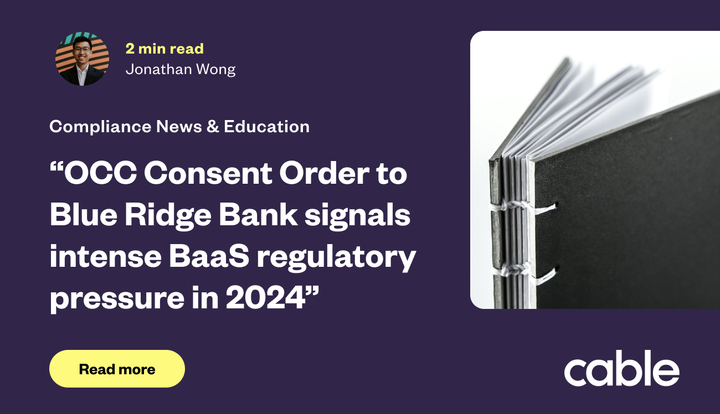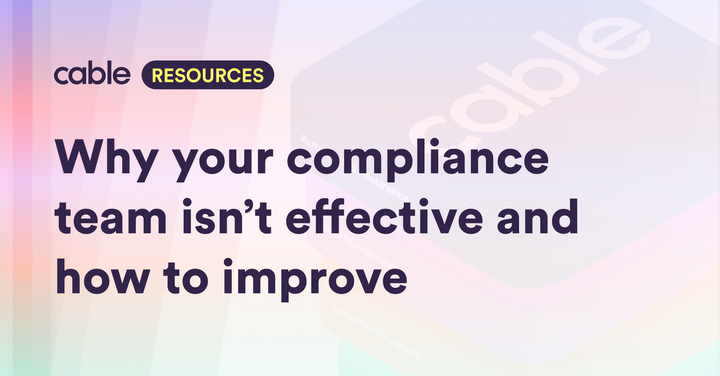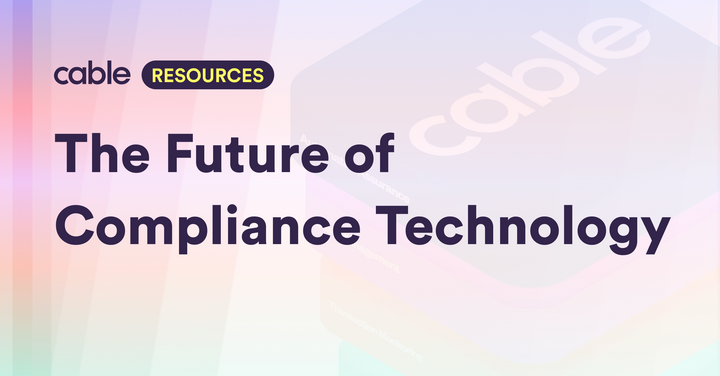Fincrime Fighters Expert Interviews: Charlotte Lowry
In this installment of our Fincrime Fighters Expert Interviews, we had the privilege of speaking with Charlotte Lowry, MLRO and Compliance Director at Pleo.

In this series, we interview compliance officers and other financial crime experts to find out the latest career tips, industry insights, and interesting trends you need to know. Sign up for our newsletter so you don’t miss out on upcoming interviews!
In this installment of our Fincrime Fighters Expert Interviews, we had the privilege of speaking with Charlotte Lowry, MLRO and Compliance Director at Pleo. You can catch Charlotte on LinkedIn.
Who are you and what do you do at Pleo?
I am Charlotte and I am the MLRO and Compliance Director at Pleo. Pleo started as a core expense management solution. Now, Pleo is moving toward becoming a business spending solution, where you can go to manage your business spending needs like business subscriptions, mileage claims, and invoice payments. Pleo is essentially making the financial world a bit nicer for employees and the people in charge of the purse.
What was your route to becoming an MLRO?
I have a legal background and then I joined PwC as a Financial Crime Consultant. I had a couple years of consulting there, where you go in and work on a lot of big projects across a lot of banks. It was quite intense. You get to do something for six months, but then you lose visibility after the project. I wanted to go work in some of the big banks and actually see projects through from start to finish, so I left PwC to join HSBC. But there, I found I missed the intense hustle of being a consultant.
When Pleo popped up, it was the perfect combination of the intensity of being a consultant and the transparent piece of being at a bank. I got to have an impact and drive the agenda at Pleo from the start. I started as the first AML hire into Pleo and moved up from AML specialist to MLRO.
When you joined, were you doing the onboarding checks when customers signed up?
No, there was a compliance team of around four people working on customer onboarding. I was the very first team member to work on AML-specific transaction monitoring.
Before I joined, Pleo had a relationship with a partner bank and used their license to operate. We got our own license later and started using it around 2019. With our own license, Pleo has its own obligation to do a lot of our own monitoring and AML. With a license comes a little more freedom but also a lot more responsibility – we can shape our approach based on our business more, making everything from onboarding to ongoing monitoring both nicer for the customer but also with more direct risk respect for the 2nd Line.
What is your favorite thing and the hardest thing about being an MLRO?
My favorite thing is also the hardest thing. I am involved in everything – looking at product development, advising on controls, identifying risks, working with the onboarding teams, looking at things for our Board and Governance, Risk and Compliance Committee, doing training and AML investigations. No two days are the same. You are ingrained in every piece of the business and the work really never stops.
No two days are the same. You are ingrained in every piece of the business and the work really never stops.
With Pleo launching in 15 markets in 15 months, we are looking into more geographic, product, and customer expansion. Keeping a handle on that is very interesting.
If you had to choose the number one most important skill to do your job, what would it be and why?
I think that there are two key skills. You need to be pretty stubborn and always stand your ground and push requirements and make sure that financial crime risks are understood.
The second skill is being incredibly personable. You have to be open to discussions, be approachable, and really have very intense personal skills. You have to set yourself up for success – you need to be able to go out and make sure that others understand where you are coming from, so they can also help themselves make the decision. Anytime someone has concerns, if you are open and approachable, it gives you the best benefit.
What is your top interview question for hiring financial crime compliance experts?
If they can take what they know now and go to restart their careers, what would they want to do? I’m trying to find folks that have drive, want to work with others, and want to push for something good and have a positive agenda.
If you answered that question, what would you say?
I would love to be a pilot. I would love to get the chance to travel and experience new things and learn about new cultures and countries. It’s also cool to have something that is very skilled in your back pocket. It is also about diving into the new and figuring things out – whilst honing a very specialist skill.
I also have a firm belief that no one goes out to work in financial crime compliance. Most people that do well are the ones that accidentally fall into it and bring skills from other parts of life and different experiences.
What are the biggest financial crime risks that Pleo faces?
We are launching in 15 markets in 15 months. We are looking at new continents, doing a lot of product development, growing our product offering and internal teams, and growing our customer base so much. We’re also an industry agnostic product, so any industry can use us and we don’t have a set customer. Our biggest risk is managing the scale, both internally and externally, and keeping on top of the growth.
Have you found anything particularly useful for mitigating that risk?
Using the right tools and technology to make sure we scale efficiently and give ourselves the best opportunity to scale. We don’t want to put hundreds of people to the problem where we can instead have some investment and some skilled people.
We don’t want to put hundreds of people to the problem where we can instead have some investment and some skilled people.
You’ll have lots of financial crime control vendors to help mitigate these risks. Is there one control vendor that stands out as being a game changer for Pleo in terms of risks mitigated or efficiencies gained?
This is very interesting. We are coming from a place where we have good developers and engineers in-house and have entirely home-built solutions. This approach was so good for the first three to four years. As we are looking towards massive expansion, we realize that we are not experts in building tools such as AI for transaction monitoring.
As we are looking towards massive expansion, we realize that we are not experts in building tools such as AI for transaction monitoring.
I am particularly excited about our partnership with Lucinity. We both share the same business ethos and want to build things together. Lucinity has the right language and right vision, and we are excited to see what the product will look like in the future. They are not a vendor that is trying to get people’s money for an off-the-shelf solution. They really have a vision for the problem and want to fix it.
When you wake up, what is the first financial crime related thing you think about? What’s your 9am thought?
I think a lot about information sharing and scaling. I don’t want to be the owner of all the knowledge. Have we done a good job at training and sharing, and are we working collaboratively across the teams?
When building tooling in-house, is there something we missed? Is there a bug we haven’t found or something we could have done better? When you own the tech and the operational side, have we done a good enough job there? The answer is to dig and also find the right tools to help you.
A lot of manual work still exists in the financial crime compliance space. If you could magic away a piece of that work, what would it be and why?
There are intense silos between organizations. We do a lot of manual work that other people are doing on the same customers. There is a lot of benefit to be gained by everyone in reducing manual work and looking at wider information sharing and collaboration within the community.
There is a lot of benefit to be gained by everyone in reducing manual work and looking at wider information sharing and collaboration within the community.
Compliance is super interesting, because it’s the one area as an organization that is not in competition with another company’s compliance area. It is about having a keen eye on reducing financial crime because of societal reasons – it doesn’t matter if it’s a legal obligation, it is the right thing to do. If there’s a better way of doing it, that’s where we should go.



